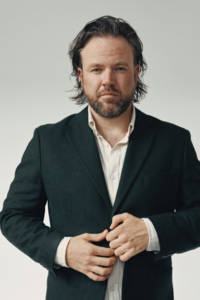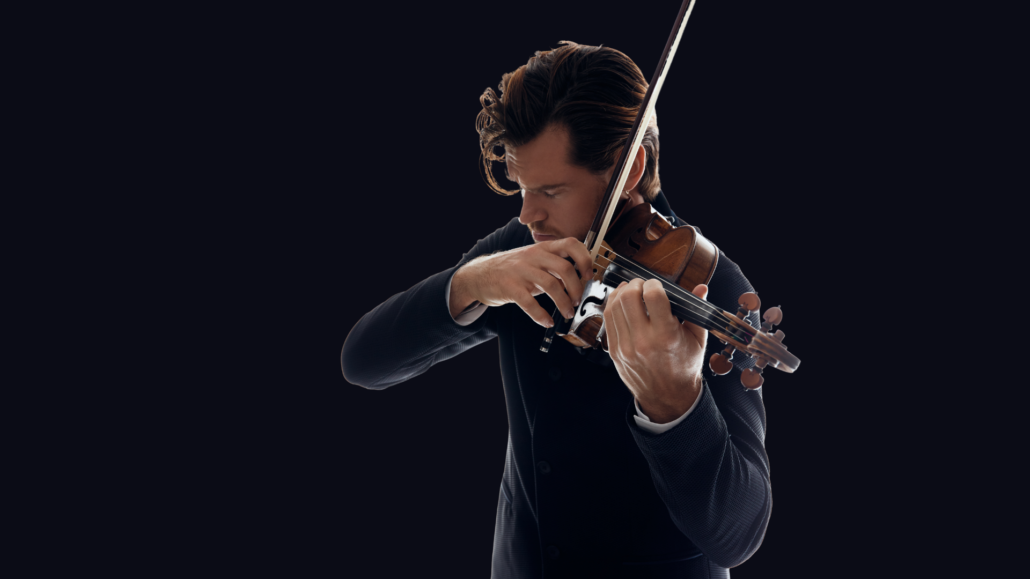 Christian Kluxen, conductor
Christian Kluxen, conductor
Now in his eighth season as Music Director of the Victoria Symphony, Christian Kluxen is also in his second season as Principal Guest Conductor of the Turku Philharmonic Orchestra in Finland, following a five-year tenure as Chief Conductor of the Arctic Philharmonic in Norway.
Kluxen has been described in the press as “a dynamic, charismatic figure” who “forms the music with an impressive vertical power of emotion and a focus on the grand form”, conducting “with exemplary clarity and a heavenly warmth”. He is recognized for his sincere and transparent leadership, innovative programming and his bold, imaginative and energetic interpretations, showcased both in his MD and guest work.
Alongside his many and varied commitments with the Victoria Symphony and Turku Philharmonic Orchestra, recent and forthcoming guest engagements include Orchestre de Chambre de Lausanne, Pacific Symphony, Prague Radio Symphony Orchestra, Copenhagen Philharmonic, Odense Symphony, and Norrköping Symphony. A fruitful and inspiring relationship with the Arctic Philharmonic, whom Kluxen led for five years as Chief Conductor, resulted in numerous exhilarating performances of a wide variety of repertoire, as well as several acclaimed recordings.

Blake Pouliot, violin
Described as “immaculate, at once refined and impassioned,” (ArtsAtlanta) violinist Blake Pouliot (pool-YACHT) has anchored himself among the ranks of classical phenoms. A tenacious young artist with a passion that enraptures his audience in every performance, Pouliot has established himself as “one of those special talents that comes along once in a lifetime” (Toronto Star).
Blake Pouliot’s 2024-2025 symphonic highlights include debuts with the LA Philharmonic at the Hollywood Bowl, San Diego Symphony, as well as the Houston Symphony, Grand Rapids Symphony, Rhode Island Philharmonic and the San Antonio Symphony. Blake expands his presence in Europe this season with performances with the London Philharmonic and Alevtina Ioffe, Chamber Orchestra of Europe with conductor Mattias Pintscher and cellist Alisa Weilerstein, KYMI Sinfonietta and Orchestre National des Pays de la Loire.
Recital performances this season include debuts at Carnegie Hall and La Jolla Music Society with pianist Henry Kremer. As a chamber musician, Blake will return to Seattle Chamber Music Society, Austin Chamber Music Festival, Charlottesville Chamber Music Festival, and with violinist Simone Porter and pianist Hsin-I Huang he will perform at the Van Cliburn Concerts in Fort Worth, TX and BroadStage in Santa Monica, CA.
During his time as Soloist-in-Residence of Orchestre Métropolitain in 2020/21, Pouliot and Yannick Nézet-Séguin performed Mozart’s Violin Concerto No. 5 and Piazzolla’s The Four Seasons which led to Pouliot’s 2022 debut with the Philadelphia Orchestra at the Kimmel Center, performing John Corigliano’s The Red Violin (Chaconne for Violin and Orchestra) with Nézet-Séguin. Highlights elsewhere include Beethoven’s Triple Concerto with Orchestre Symphonique de Montréal in 2022/23, with Angela Hewitt and Bryan Cheng, as well as performances of the Paganini, Mendelssohn, Saint-Saëns concerti and Bruch’s Scottish Fantasy in subscription series across North America.
Pouliot released his debut album of 20th century French music on Analekta Records in 2019. Featuring Ravel’s Tzigane and Violin Sonata in G, Debussy’s Violin Sonata in G minor and Beau Soir, the recording received critical acclaim including a five-star rating from BBC Music Magazine and a 2019 Juno Award nomination for Best Classical Album.
Since his orchestral debut at age 11, Pouliot has performed with the orchestras of Aspen, Atlanta, Detroit, Dallas, Madison, Montreal, Toronto, San Francisco, and Seattle, among many others. Internationally, he has performed as soloist with the Sofia Philharmonic in Bulgaria, Orchestras of the Americas on its South American tour, and was the featured soloist for the first ever joint tour of the European Union Youth Orchestra and National Youth Orchestra of Canada. He has collaborated with many musical luminaries including conductors Sir Neville Marriner, David Afkham, Pablo Heras-Casado, David Danzmayr, JoAnn Falletta, Marcelo Lehninger, Nicholas McGegan, Alexander Prior, Vasily Petrenko and Thomas Søndergård.
Pouliot has been featured twice on Rob Kapilow’s What Makes it Great? series and has been NPR’s Performance Today Artist-in-Residence in Minnesota (2017/18), Hawaii (2018/19), and across Europe (2021/22). Prior to that, he won the Grand Prize at the 2016 Orchestre Symphonique de Montréal Manulife Competition and was named First Laureate of both the 2018 and 2015 Canada Council for the Arts Musical Instrument Bank.
Pouliot performs on the 1729 Guarneri del Gesù on generous loan from an anonymous donor.



 Christian Kluxen, conductor
Christian Kluxen, conductor